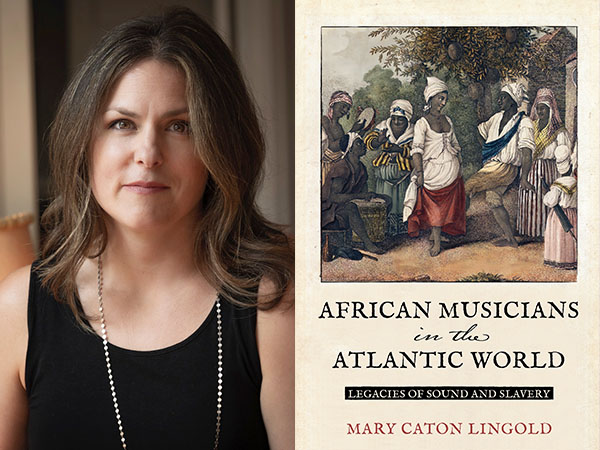African Musicians in the Atlantic World: Legacies of Sound and Slavery
March 25, 2024

Meet VCU Authors: Mary Caton Lingold, PhD
Start time: 12:00 p.m.
End time: 1:00 p.m
Location: Virtual
Music, that fundamental form of human expression, is one of the most powerful cultural continuities fostered by enslaved Africans and their descendants throughout the Americas. The roots of so much of the music beloved around the world today are drawn directly from the men and women carried across the Atlantic in chains, from the west coast of Africa to the shores of the so-called New World. This important new book bridges African diaspora studies, music studies, and transatlantic and colonial American literature to trace the lineage of African and African diasporic musical life in the early modern period.
Mary Caton Lingold meticulously analyzes surviving sources, especially European travelogues, to recover the lives of African performers, the sounds they created, and the meaning their musical creations held in Africa and later for enslaved communities in the Caribbean and throughout the plantation Americas. The book provides a rich history of early African sound and a revelatory analysis of the many ways that music shaped enslavement and colonization in the Americas.
About the Author
Dr. Mary Caton Lingold is Associate Professor of English at Virginia Commonwealth University, where she also directs the PhD Program in Media, Art, and Text (MATX). She is an interdisciplinary scholar specializing in the literature, culture, and music of the African Atlantic world, as well as the fields of sound studies and digital humanities. Mary Caton is the author of African Musicians in the Atlantic World: Legacies of Sound and Slavery (UVA 2023), a co-edited volume Digital Sound Studies (Duke 2018), and articles in journals such as Early Music, Studies in Eighteenth-Century Culture, and Early American Literature. She also collaborates on projects that blend historical scholarship, performance, and new media, including the website Musical Passage: A Voyage to 1688 Jamaica and a podcast about a song by an enslaved woman named Tena.